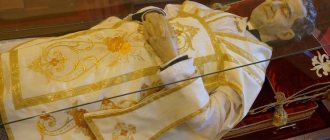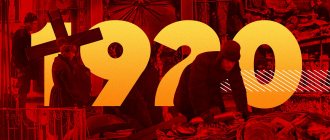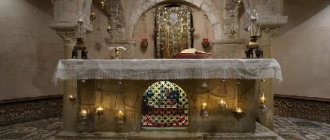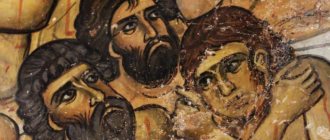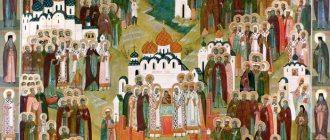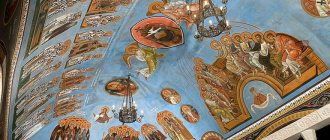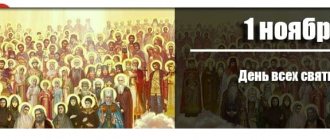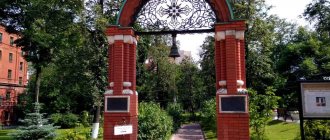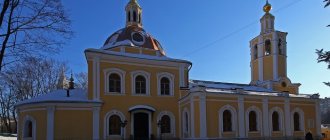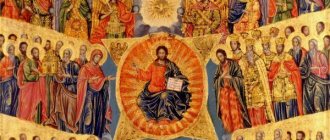Even in the early period of the history of the Israeli people, those began to emerge from among them, through whose lips the Lord expressed His will and denounced all those who had departed from His sacred covenants. One of them is the prophet Elisha, whose name is translated from Hebrew as “God is salvation.” Carrying out his high ministry for 65 years and outliving 6 Israeli kings, he always fearlessly told them the truth to their face, denouncing, if necessary, idolatry and wickedness. The icon of the holy prophet opens the article.
Disciple and successor of the prophet Elijah
Prophet Elisha, whose icon can be seen today in the iconostasis of most Orthodox churches, was born in the 9th century BC. e. in the village of Abel-Mekhol, located near the Jordan River. Despite the fact that his father was a wealthy landowner, Elisha himself, before devoting himself to serving God, worked in the field along with ordinary workers. There, while plowing, he was found by another great prophet of the Israeli people, Elijah, who became the mentor and spiritual father of the young farmer.
Having become a zealous follower of his teacher, Elisha was honored to be the only witness of his ascension to heaven. The 2nd Book of Kings of the Old Testament tells how, rushing upward in a fiery chariot, the prophet Elijah threw off his mantle (mantle) to his disciple, symbolically betraying with this gesture the power that the Lord had endowed him with.
Recommendations
- Wells, John S. (1990). "Elisha." Longman Pronunciation Dictionary
. Harlow, England: Longman. p. 239. ISBN 0-582-05383-8. - Koran 6:86, 38:48
- Revisiting the Sacred: New Perspectives on Bahá'í Theology
, Vol. 8. p. 32. Jack McLean. 1997 - ^ a b
Achtemeijer, Paul L. ed., and Dennis R. Bratcher, Ph.D. "Elisha." HaperCollins Bible Dictionary. New York, New York: HarperCollins, 1996. - ^ a b c
""Elisha",
Jewish Encyclopedia
". - Doty, William Plaskett; ), Elisha (The Prophet (1872). Doty, William Plaskett.
History of the Prophet Elisha.CS1 maint: numerical names: list of authors (link) - "Wald, Jack, 'Asks for Double Share', International Church of Rabat, November 2, 2003."
- Francis, Rodney W. "Prophetic Double Anointing." Messenger of the Gospel Faith
. gospel.org.nz. - ^ a b c d
"" Elisha "Order of Carmelites". - ^ a b c
Duffy, Daniel (1909).
"Elisha." Catholic Encyclopedia
.
5
. New York: Robert Appleton Company. Retrieved January 7, 2014. - Hebrew naar
, translated "young man" in the New International Version.
The Jewish Encyclopedia
on Elisha states: "The criminals were not children, but they were called so ("nearim") because they did not have ("meno'arin") all the religion (Soṭah 46b).
“Although the Authorized King James Version used the words “little children,” theologian John Gill stated in his Exposition of the Bible
that the word “was used by people from thirty to forty years of age.” - 2 Kings 2:19–22
- Zucker, David J., "Elijah and Elisha", Part II, Hebrew Bible Quarterly
, Volume 41, Number 1, 2013 - 1 Kings 18:3–16; Wed Pulpit Commentary on Kings 2, accessed December 22, 2022.
- 2 Kings 4:42–44
- Matthew 14:15–21, Matthew 15:32–38, John 6:5–14
- Cambridge Bible for Schools and Colleges
for 2 Kings 4, accessed December 24, 2022. - ^ a b
"Elisha". Orthodox Church in America. - 2 Samuel 5:15
- Luke 4:27
- 2 Kings 6:25–32
- 2 Kings 6:13–23
- 2 Samuel 6:1–7
- 2 Samuel 7:1–20
- ^ a b
2 Samuel 8:7–15 - 2 Samuel 6:24–7:2
- 2 Kings 9:1–10
- 2 Kings 9:11–10:30
- 2 Kings 13:14–20
- 2 Kings 13:14
- 2 Kings 2:12;2 Kings 13:14
- 2 Kings 13:17
- 2 Kings 13:18–19
- Pulpit Commentary on 2 Kings 13, accessed January 9, 2022.
- 2 Kings 13:20–21
- Carmelite Calendar Archived July 13, 2007 Wayback Machine
- Rev. Paul L. Rothermel (August 19, 2010). "Jesus never married." Answers to questions about Christianity
. St. Ignatius reads. Archived from the original on 2011-07-28. - Denis Pringle, Churches of the Crusader Kingdom of Jerusalem: Corpus.
Vol. 2: LZ (without bus) , item 283. - "Monastery of St. Macarius the Great."
- Tottoli, Roberto, "Elisha", in: Encyclopedia of the Quran
, General Editor: Jane Dammen McAuliffe, Georgetown University, Washington, DC. Brill Online. - Tottoli, Roberto, "Elisha", in: Encyclopedia of Islam, TRI, Edited by: Kate Fleet, Gudrun Kremer, Denis Matringe, John Navas, Everett Rawson. Brill Online.
- Koran 6:86
- Koran 38:48
- al-Rabghuzi, Narratives of the Prophets
, ed. Hendrik E. Boschoten, M. Vandam and Semih Tezkan [Leiden 1995], 2: 460 - “Religious restrictions in Saudi Arabia - report: JAFARIYA NEWS, December 12 News.”
- "Salafi Bida in Respect for the Signs of Allah."
- اليسع (Al-Yasa) (in Arabic)
- "Diyarbakir - Egil - Peygamberler Türbesi."
- Baraj suyu çıkilince peygamberlerin kabirleri gün yüzüne çıktı (Turkish) Ilha
. Published December 19, 2022. - Diyarbakirda 2 Peygamber Naaslarinin Naklinde Inanilmaz Olaylar Gerceklesti (Turkish) KorkusuzMedya
. Retrieved April 11, 2022.
This article incorporates text from a publication now in the public domain: Gerbermann, Charles, ed. (1913). "Elisha." Catholic Encyclopedia
. New York: Robert Appleton Company.
The power that overthrew the laws of nature
The following describes the first of the miracles of the prophet Elisha: calling on God, he hit the water with his mantle, and the waters of the Jordan parted, allowing him to cross on dry land to the other side, just as the Red Sea once let Moses and everyone who followed him through, fleeing from persecution of the pharaoh.
It is known from the Holy Scriptures that some prophets, wanting to give their words greater power, accompanied them with various visions, while others used for this purpose the shocks and suffering that befell the Israelites for their apostasy. The prophet Elisha was one of those who performed miracles that testified to the truth of his predictions. The Spirit of God resting on him allowed the saint to overthrow the laws of nature and thus proclaim to people the will of their Creator.
Miracles that became a prototype of the Gospel events
It is enough to remember how the prophet turned the musty water of the Jericho spring into clean and life-giving, how, at the request of a poor widow, he increased her supply of oil and fed a hundred people with twenty small loaves. A sign of the special grace bestowed upon him was the gift of resurrection of the dead, evidence of which is given in the 4th Book of Kings. It tells how the prophet brought back to life the deceased son of a pious woman who showed him hospitality during his frequent wanderings. Many theologians pay attention to one curious detail related to the resurrection of a child.
There is no doubt that for his resurrection only the prayer of the prophet Elisha would have been sufficient, but the description of the miracle he performed says that the saint lay down on the body of the deceased and, pressing his lips to his lips, breathed life into him. It is generally accepted that this scene is a prototype of how in the future Jesus Christ breathed eternal life into the human race killed by sin.
Among the miracles performed by the prophet Elisha, Christian theologians see another one, which showed a prototype of the future appearance of the Son of God to people. It is said that one day an ax of a worker working on the banks of the Jordan fell into the river and drowned. Elisha, who was nearby, took part of a certain tree and, after praying, threw it into the water, after which the ax, contrary to all the laws of nature, unexpectedly floated up. What is this, in the general opinion, if not a prototype of the future power of the cross of the Lord, raising the fallen human soul from the depths of sin?
Holy Prophet Elisha
Memory 14/27 June
| Holy Prophet Elisha |
The Prophet Elisha[1], whose name means “God is salvation,” was the son of a rich farmer from Abel-Mehola in the valley of the river.
Jordan. One day, when he was plowing with twelve pairs of bulls, the prophet Elijah came up (July 20) and threw him his mantle[2]. This meant that the prophet accepted Elisha as a disciple and promised to convey to him the prophetic gift. Elisha killed a yoke of oxen and, using their harness, made a burnt offering to the Lord. Giving up all his property and not saying goodbye to his family, he followed Elijah and became his devoted disciple. When Elijah completed his ministry, Elisha received permission from the prophet to follow him to the very place of his ascension into Heaven. Elisha asked for double the power of prophecy. When the fiery chariot appeared, Elijah rose into the sky in a whirlwind, throwing his mantle to the ground. Elisha picked her up and walked to the bank of the Jordan. He hit the water with his mantle, calling on the God of Elijah, and the waters parted in different directions, allowing him to cross the river on dry ground. Then all the prophets who saw this bowed down to him to the ground, saying: “The spirit of Elijah rested on Elisha!”
For approximately fifty years (850–800 B.C.), Elisha performed prophetic ministry in the country of Samaria during the reigns of successive kings Jehoram, Jehu, Johaz, and Josh. He tirelessly instructed the Israelites: kings, those in power and the common people - to leave foreign gods, Baal and Ashtoreth, and return to worshiping the true God.
Some prophets taught with words and visions, others with suffering and turmoil. Elisha, like his teacher, testified to the truth of his prediction with the help of miracles. The Spirit of God resting on him was a power that overthrew the laws of nature in order to testify to the grace given to believers in the true God, and to proclaim in images the Savior.
The prophet, with the help of salt, neutralized bad water in a spring near Jericho, increased the supply of oil of one poor widow, thereby allowing her to pay off her debts, and turned a bitter stew into a delicious soup to feed the sons of the prophets. Having multiplied twenty barley loaves, he fed more than a hundred people.
Every time the man of God passed through the village of Sonam, a pious woman received him into her home. It so happened that her son, whose birth was prayed for by Elisha, died. She hurried to the prophet on Mount Carmel, begging him to come to the deceased. When Elisha arrived, he found the child lying on the bed. And although a miracle could have happened just by his prayer, he lay down on the child, put his lips to his lips, his eyes to his eyes, his palms to his palms and breathed into him the breath of life. In this action the incarnation of our Lord Jesus Christ was foreshadowed, who descended from Heaven to become like a man killed by sin, and to breathe into him the Spirit of eternal life. Then the prophet advised this Shunammite woman to retire for a while from the kingdom of Israel to the land of the Philistines, in order to thus avoid a seven-year famine.
Another time, one of the sons of the prophets, working on the banks of the Jordan, dropped the blade of an ax into the river. After praying, Elisha took a piece of wood and threw it into the water, causing the ax to float to the surface. Thus he typified the power of the Cross, which uplifts fallen human nature.
Enlightened by the grace of God, Elisha had an all-penetrating gaze and thanks to this he informed the kings of Israel and their allies about the intentions of the Assyrian ruler. Every time the enemy wanted to ambush the Israelis, he found them already on the spot ready for battle. When Samaria was besieged by the Syrians and suffering from famine, the man of God predicted to the king, who was ready to utter blasphemy, that the city would soon be liberated. The next day everyone learned that the enemy, frightened by a certain vision, broke camp and fled, leaving behind all their supplies and loot.
The prophet Elisha preached not only among the Israelites, but also among the pagans. He healed the Syrian military leader Naaman from leprosy, commanding him to bathe in the Jordan, thereby prefiguring the salvation of the pagans through holy baptism.
Elisha predicted the murder of the Damascus king Benhadad II by his close associate Hazael, to whom he announced that he would soon seize power.
Sometimes the grace of God worked through him to punish sin. After the prophet cursed the impudent children who mocked him, two she-bears came out of the forest and tore to pieces forty-two children. One day, Elisha’s servant Gehazi wanted to take gifts from Naaman, which he had sent to the prophet as a sign of gratitude and which Elisha had refused. Gehazi hid the gifts in his house and lied to the teacher, but could not escape his penetrating gaze - and was stricken with leprosy.
Thanks to the wonderful works done by God through His prophet, the kingdom of Israel was almost completely freed from the worship of Baal. However, the Jews, who were responsible for the division of the kingdom, still needed constant divine participation in order to turn away from idols and sin and return to the worship of the true God.
The holy prophet Elisha died at a very old age. Before his death, he predicted victory over the Syrians to the king of Israel, who came to the prophet’s house to mourn his death. In the same year, during the attack of the Moabites, the body of one dead man was thrown into Elisha’s grave - the man returned to life and stood on his feet. Therefore, the wise Sirach glorifies the prophet Elisha, saying: And after his death his body prophesied. And during his life he performed miracles, and after his death his deeds were wondrous.
(Sir 49, 14–15). The tomb of the great prophet was very revered by the Jews. Julian the Apostate (362) ordered it to be desecrated, but particles of Elisha’s relics were preserved and transferred to Alexandria and Constantinople to the temple named after him.
The great gift of insight
Having made his chosen one a prophet, the Lord endowed him with an all-penetrating gaze that revealed to him all the secret plans of the enemies of his people. Thus, he repeatedly warned the kings of Israel and those who became their allies about the intentions of the treacherous Assyrian ruler. Thanks to this, every time, wanting to take the Israelis by surprise, the enemy received a proper rebuff from them and was defeated.
The life of the prophet Elisha describes a very significant case. Once Samaria, where he lived in those years, was under siege by Syrian troops for a long time. When food supplies ran out, a terrible famine began among its defenders, as well as civilians, which caused the king to despair, and blasphemies were ready to fall from his lips.
However, the man of God, as the prophet Elisha is usually called, having seen with his inner eye a quick deliverance from trouble, reported this to the king. And indeed, the next day the besiegers had a certain terrible vision, because of which they fled in panic, abandoning all their food supplies and valuables looted during the campaign.
Elisha in the Koran
Elisha is a biblical prophet who is also present in the Koran. Only in this book he is represented by the prophet Al-Yasa, who is written about in the Quran verses 38:48 and 6:86. Together with the prophet Ilyas (Elijah), the seer called on the Israeli people to follow the laws of the Taurat (Torah) and the Sharia of Musa (Moses).
After the people of Israel did not respond to the call of Ilyas, expelled him from the country and began to worship the idol Baal, Allah severely punished them by sending them a drought. The lost Israelites had to flee from hunger: at that time they ate carrion.
The people of Israel survived all the misfortunes that befell them, and again invited the seer Ilyas to their place. The residents returned to faith in Allah, but then some of them again moved away from it and began to commit immoral acts. The prophet Ilyas left them and began to prophesy faith among other tribes of Israel.
So, Ilyas settled in the home of a woman who lived with her son Al-Yasa. Al-Yasa was suffering from a terrible illness at that time. The mother asked Ilyas to help her son, and he offered a prayer to Allah for healing. As a result, Allah healed Al-Yasa. After his amazing recovery, the young man followed his savior until the end of his life and memorized Taurat under his guidance.
After the death of Ilyas, Allah made Al-Yasa a seer and obliged him to call his people to believe in Allah. Unfortunately, the people rejected this creed. At that time, a struggle for power flared up between the various tribes of Israel, and Allah sent disaster to them in the form of the Assyrians.
The Assyrians conquered the territory of Israel and carried away a huge number of inhabitants into slavery. Subsequently, the Israelis sometimes submitted to Al-Yas, and sometimes rebelled against him. Before leaving for the other world, Al-Yasa appointed Zulkifla (Ezekiel) as his successor.
Elisha's missionary work among the Gentiles
Elisha’s preaching activity among the pagans was also of great importance, to which he devoted a significant part of his life, and which had a deep inner meaning. In this regard, it is appropriate to recall his healing of the Syrian military leader Naaman from leprosy. The Prophet ordered him to bathe in the Jordan, after which the serious illness subsided in the blink of an eye. This episode is considered by theologians throughout the Christian world as a prototype of the future salvation of the pagans through their acceptance of holy baptism.
further reading
Islamic view
- Amina Adil, Gaben des Lichts.
Die wundersamen Geschichten der Gesandten Gottes (Kandern im Black Forest 1999), 563–73 - al-Farrah, Manani al-Quran
, ed. Ahmad Yusuf Najati and Muhammad Ali al-Najjar (Cairo, 1955–71), 2: 407–8. - Joseph Horowitz, Koranische Untersuchungen
(Berlin and Leipzig, 1926), 99, 101 - al-Khushabi, ʿArashis al-Qurban wa-nafanis al-furqan wa-faradis al-jinan
, ed. Said Abd al-Fattah (Beirut, 2007), pp. 167–9. - al-Kisani, Qia al-anbiyā
, ed.
Isaac Eisenberg (Leiden, 1922–3), 199–205, trans. Wheeler M. Thaxton, Jr., Tales of the Prophets by al-Kisali
(Boston, 1978), 269 - al-Majlisi, Bidar al-Anwar
(Beirut, 1983), 13: 396–403. - al-Maqdisi, al-Muhahhar b.
Shahir, al-Badh wa-l-tahrikh , ed. Clément Huart (Paris, 1903), 3: 100 - al-Rabghuzi, Narratives of the Prophets
, ed. Hendrik E. Boschoten, M. Vandamme and Semih Tezkan (Leiden, 1995), 2: 460 - Sib b. al-Jawzi, Mirnat al-zaman fi tahrikh al-anyan
, ed. Isan Abbas (Beirut, 1985), 1: 460, 466 - al-Tabari, Taʾrīkh al-rusul wa-l-mulūk
, ed.
MJ de Goeje et al. (Leiden 1879–1901), 1: 542–4, trans. William M. Brynner, The History of al-Tabari, vol. 4. Children of Israel
(Albany 1991), 124–5 - al-Thaʿlabī, Qia al-anbiyā
(Cairo, 1954), 259–61, trans.
William M. Brynner, ʿArāʾis al-Majālis fi Qia al-Anbiyā
or
Lives of the Prophets Narrated by Abu Ishaq Ahmad ibn Muhammad ibn Ibrahim al-Tahlabi
(Leiden, 2002), 432–35.
Punishment of a lying servant
It is known that the Lord more than once chose the prophet Elisha as His instrument for punishing sin. Thus, the above-described episode of the healing of a Syrian military commander from leprosy in the Old Testament has a very instructive continuation. The fact is that Naaman, in gratitude, sent gifts to his deliverer, which he refused.
Taking advantage of the situation and succumbing to temptation, Elisha's servant Gehazi tried to appropriate these generous gifts for himself. However, the lie to which he resorted to justify his unseemly act did not escape the prophet’s penetrating gaze, and the deceiver was struck by leprosy.
Illness of the famous governor
What else was the prophet Elisha famous for? We study his life further. One day, the famous commander Naaman, who served the king of Syria, fell ill with leprosy. It is known that he was famous for his military victories and his courage. He was sick for a very long time and could not find doctors who would heal him.
One day, Syrian soldiers from the country of Israel captured a girl and gave her to Naaman’s wife to serve. The girl heard about the holy seer Elisha from her father and mother: they told her about the great miracles that happened through his prayers. She told her mistress about it.
“Oh, if my master visited the seer Elisha, who lives in Samaria, he would heal him of leprosy,” said the girl. Naaman’s wife retold her words to her husband, and he visited his king and began to ask him to allow him to travel to Israel for healing from the prophet.
The king allowed him to go and carried with him a letter to the ruler of Israel, Jehoram. Naaman took with him gifts for Elisha - ten changes of rich clothes, ten talents of silver and six thousand gold coins. Soon he arrived in Israel and gave King Jehoram a letter in which his king wrote: “From my message that you will receive, learn that I have sent my servant Naaman to you so that you can cleanse him from leprosy.”
The Israeli sovereign, having studied the letter of the ruler of Syria, was greatly saddened and, tearing his clothes, said: “Am I the Lord, who alone can give life and death, that he sent his servant a leper to me so that I could cure him of leprosy? Apparently, he is looking for an excuse to start a war against me!”
The seer Elisha learned that the king was upset and tore his clothes. He sent people to tell the ruler: “Why are you upset and why did you tear your clothes? Let Naaman come and see that there is a seer of God in Israel!”
Naaman came to Elisha's house and stopped near it with horses and chariots. The Prophet told him through the servant: “Go and plunge into the Jordan seven times, and your body will be cleansed. It will become the same as it was before.”
Naaman was offended when he heard such words from the prophet, and left, crying: “I hoped that he would come to me and, standing in front of me, call the name of his Lord, touch my leprous body and cleanse it, and he tells me to bathe in the Jordan ! Are not the rivers of Damascus, Farphar and Awan better than the Jordan and all the waters of Israel? Couldn’t I bathe and be healed in them?”
And Naaman went back from Samaria in great anger. On the way, the servants asked him to listen to the command of the seer of God and said at the same time: “If Elisha had ordered you to do something more difficult, would you not have fulfilled his commands? But he only told you to plunge into the Jordan for cleansing, but you don’t want to do that either.”
Naaman obeyed his servants, went to the Jordan River and plunged into it seven times, as the seer of God commanded him, and at that very moment his body was cleansed. He returned to Elisha with those accompanying him and, standing in front of him, said: “Now I have believed that only in Israel there is God. Therefore, accept from your servant the gifts that I brought you.”
Naaman offered the seer silver, clothing and gold. But Saint Elisha said to him: “The Most High lives, whom I serve, and I will not take anything from you.” Naaman began to convince the prophet to accept what was brought, but he was unshakable. Then Naaman asked the saint: “Let your servant take as much land as my two mules can carry. Having delivered her home, I will build an altar to the Lord God of Israel, for from now on your servant will not make sacrifices to other gods, but only to the One true God.”
The seer allowed him to take what he wanted and let him go in peace. When Naaman left, Elisha’s servant Gehazi began to reflect: “This is what an invaluable service my master did to Naaman the Syrian and did not take a single gift from his hands. I’ll catch up with him and ask him for something.”
And he stood up and hurried after Naaman. The commander saw Gehazi, got down from his chariot and greeted him. Gehazi said to him: “My master has sent me to tell you that today two prophetic disciples have come down to him from Mount Ephraim. He asks you to give them two changes of clothing and a talent of silver.” Naaman invited him to take two talents and ordered him to put the silver in two bags. He provided Gehazi with his servants to carry the gifts, and also gave him two robes.
Gehazi came home at sunset, hid what he had taken in his dwelling, and he himself went to his master. God's seer Elisha asked him: “Where did you come from, Gehazi?” He answered him: “Your slave did not go anywhere.”
Then Elisha said: “Didn’t my heart follow you and see how that man came down from the chariot and came to you, and how you took his clothes and silver? Don’t I know that you want to use this silver to buy vineyards and olive trees for yourself, oxen, sheep, maidservants and servants? For this reason, Naaman’s leprosy will stick to your offspring and to you forever.”
And Gehazi came out from Elisha white as snow: he was immediately covered with leprosy.
Punishment for insolence
In the 2nd Book of Kings, which tells about the earthly life of the prophet Elisha, there is one episode that sometimes causes bewilderment for many who open the pages of Holy Scripture for the first time. During the Soviet period, filled with anti-religious campaigns, it was often used by militant atheists. He is known as “the prophet Elisha and the children.” In this case, we are talking about how once a crowd of children angrily mocked the prophet, who by that time had reached old age. Chasing him, they shouted various insults, for which they paid with their lives: two she-bears suddenly appeared from the forest and tore them to pieces. Such a plot often gives rise to questions about how the events described are linked to the mercy of God and the humanism of His prophet.
To correctly perceive this episode, shocking, at first glance, with its blatant cruelty, it should be taken into account that many biblical texts carry a purely allegorical meaning, and, not being a documentary reflection of real events, are included in the Holy Scriptures solely for educational purposes. There is no doubt that in this case, the death of children is only an image of the moral death of those who trample on the commandments established by God, among which an important place is given to honoring elders.
History of Elisha Church
It is known that the church of the seer Elisha was consecrated on June 13 (26 according to the new style) in the village of Sidozero, Olonets province. This building did not appear by chance. Its unique dedication is due to the fact that the temple was erected on the burial site of a certain monk Elisha. Popular legend called him a monk of the nearby Yablonsky Hermitage - a small monastery located on the Yablonsky Peninsula, in the middle of Svir.
According to legend, during the Time of Troubles, when the Yablonskaya Hermitage was ravaged by the Poles, Elisha escaped in the forests on the right bank of the Svir. He settled on the coast of Sidozero. Local residents at the end of the 19th century talked about the “monk’s path” that the seer walked from Sidozero to his ruined monastery. It was here, on Sidozero, that Elisha reposed.
An impressive cross was placed on his grave. Local residents have long revered Elisha’s grave; everyone had an icon of the prophet Elisha in their home. In 1870, in memory of the end of the epidemic among rural livestock, it was decided to celebrate the memory of the seer Elisha every year on June 14. At the same time, a chapel was erected over the burial place made of wood. Every year the number of pilgrims visiting this holy place increased, and at the end of the 19th century people decided to build a special church here.
Posthumous miracle of God's chosen one
Prophet Elisha completed his earthly journey as a very old man. Already on his deathbed, he predicted victory over the Syrians for the Israeli king Joash, who came to say goodbye to him. The man of God performed his last miracle when, a few months after his burial, the Moabites who attacked the country threw the body of an Israeli they had killed into his grave. However, as soon as the dead man touched the holy relics, life returned to him, and he glorified the all-merciful God.
The grave of the holy prophet enjoyed universal veneration even before the appearance of the Son of God Jesus Christ in the world. When in 362 the Roman Emperor Julian the Apostate ordered its desecration, the relics were secretly removed from it by pious people and transferred to the temples of Constantinople and Alexandria that bore his name.
Miracles of Elisha after death
The prophet Elisha did many good deeds. His prayer could even send heavy rain to the earth. It is known that the seer Elisha not only performed miracles during his lifetime, but also showed himself to be a miracle worker after his death. A year after he passed on to another world, a dead man was carried outside the city to be buried. At that moment, a horde of Moabites appeared, carrying out a raid on the lands of Israel.
The people who were carrying the deceased noticed the enemies from afar and left the corpse in a nearby cave. This was exactly the cave in which the ashes of the seer Elisha rested. The dead man touched the bones of the soothsayer and instantly came to life: he left the cave and hurried to the city.
So after death the Lord glorified His saint. People celebrate the day of the prophet Elisha with reverence. Marvelous is the Lord God of Israel in His saints.
Veneration of the Israeli prophet in Orthodox Rus'
In our country, as well as throughout the Christian world, the Prophet Elisha enjoys universal veneration, as evidenced by the above-mentioned tradition of placing his icons in church iconostases, as well as on the day of remembrance, celebrated annually on July 14, reading an akathist dedicated to him. It lists in detail the deeds of the saint and raises petitions for intercession before the Throne of the Most High for the prosperity of all those who follow the path of God's commandments.
In 1899, not far from St. Petersburg, in the area of the village of Sidozero, a wooden church of the Prophet Elisha was built. In the 30s, in the wake of another anti-religious campaign, it was closed, and to this day it stands abandoned and forgotten (photo below). And once upon a time, the sound of its bells rang throughout the area, and during services, prayers to the prophet of the Lord were constantly heard.
The Orthodox people hailed the prophet Elisha as the “lamp of God,” who delivered the children of Israel from wickedness and the darkness of polytheism. The Russians asked to confirm them in a living and active faith, they prayed for the sending of grace-filled power in the fight against the enemy of the human race, as well as for the illumination of their hearts with the light of meekness, humility and brotherly love.
Over its centuries-old history, the Israeli people have come a long and painful path from idolatry to the recognition of one God ─ the Creator of the world and the Judge of all living in it. More than once he happened to stumble and reap the bitter fruits of God's wrath. But, out of His boundless mercy, the Lord always sent them those who returned them to the true path, like the lost sheep of His chosen flock. One of them were the great prophets Elijah and Elisha.
Reverence
Elisha Raising the Shunammite Woman's Son
, woodcut by Julius von Carolsfeld (1794–1872)
He is revered as a saint in a number of Christian churches. Its festival is on June 14, on the Eastern Orthodox and Eastern Catholic liturgical calendars (for those churches that use the traditional Julian calendar, June 14 falls on June 27 on the modern Gregorian calendar). John of Damascus composed a canon in honor of Elisha, and in Constantinople in his honor.
In Western Christianity he is commemorated in the Carmelite calendar of saints, and the Catholic religious order,[36] by decree of the Carmelite General Chapter of 1399.[9] He is also noted as a prophet in the Calendar of Saints of the Lutheran Church-Missouri Synod. Both calendars also mark it on June 14th. Both Orthodox and Catholics believe that he was unmarried and celibate.[37]
Julian the Apostate (361–363) ordered the burning of the relics of the prophets Elisha, Obadiah and John the Baptist, who were buried next to each other at Sebastia,[38] but they were rescued by Christians and some of them were transferred to Alexandria.[18] Today, the relics of Elisha are considered one of the possessions of the Coptic Orthodox Monastery of Saint Macarius the Great in Scetes, Egypt.[39]
